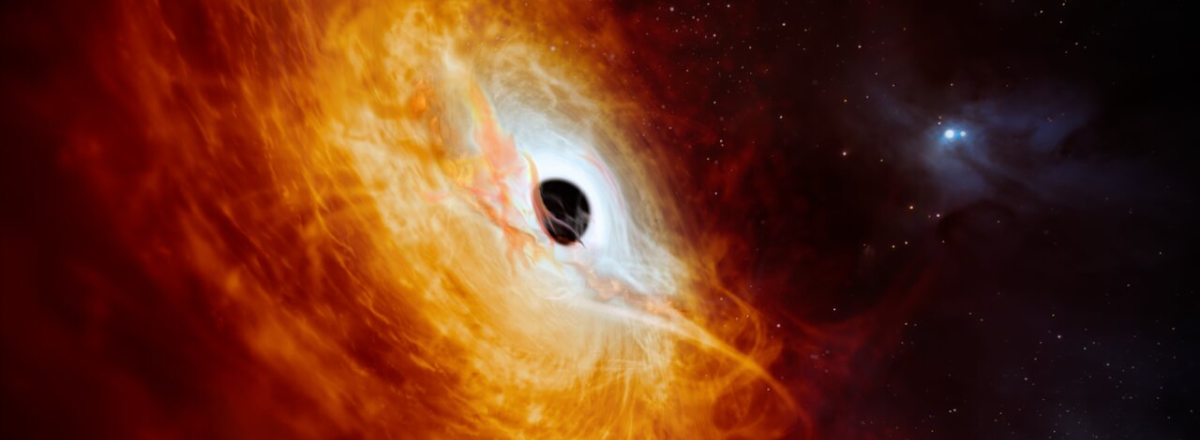Astronomers Discover a Colossal Black Hole Devouring a Whole Sun a Day
This cosmic giant, situated about 12 billion light-years from Earth, consumes the equivalent of one sun's mass daily, making it the hungriest black hole observed to date.

Astronomers have unveiled the existence of an unprecedentedly bright and rapidly growing quasar, J0529-4351, which houses a supermassive black hole with an insatiable appetite. This cosmic giant, situated about 12 billion light-years from Earth, consumes the equivalent of one sun's mass daily, making it the hungriest black hole observed to date.
J0529-4351 was initially mistaken for a star due to its intense luminosity. Further investigation revealed it as a quasar, the vibrant heart of a distant galaxy, shining with the light of 500 trillion suns. The quasar stands out not only for its brightness but also for the staggering rate at which its central black hole, weighing between 17 and 19 billion solar masses, accretes material from its surroundings.
This discovery raises intriguing questions about the growth of such colossal black holes in the universe's infancy, barely 1.5 billion years after the Big Bang. The findings challenge our understanding of cosmic evolution and the mechanisms enabling supermassive black holes to accumulate mass at such an astonishing pace.

